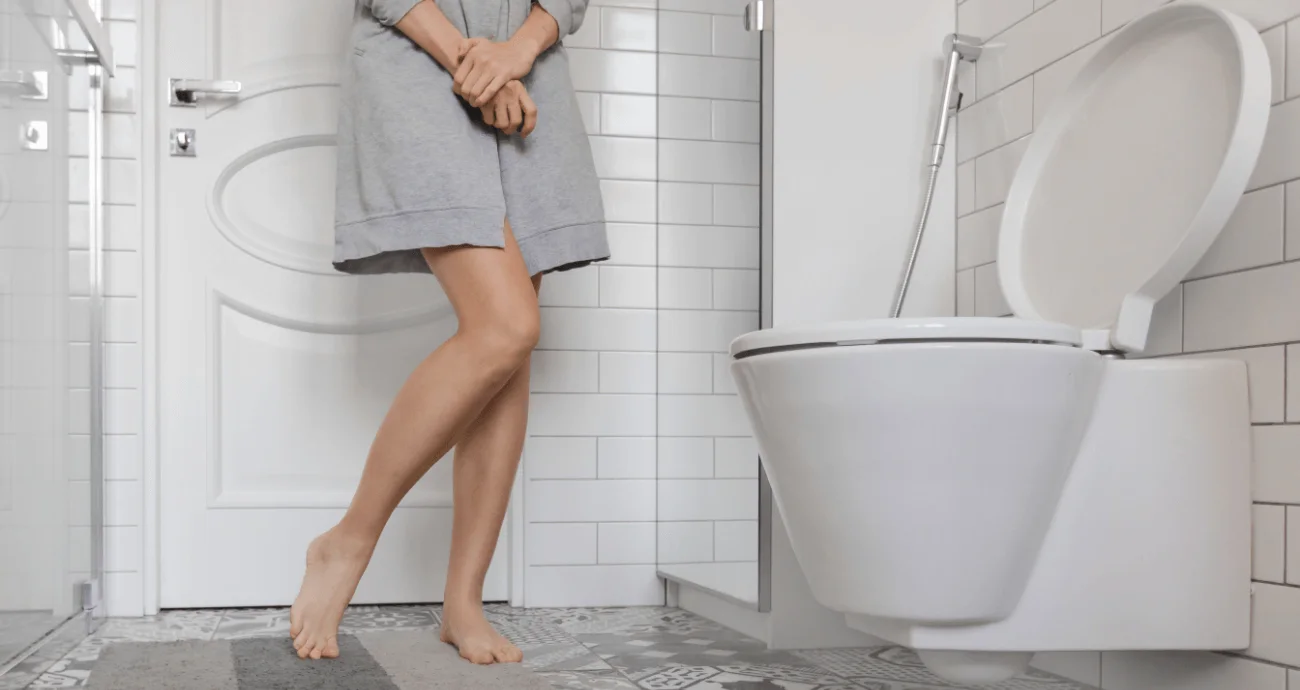What is douching? Is it helpful or harmful?

Many women are unaware of the fact that your vagina has a natural, mild smell. This lack of knowledge makes so many of us conscious of our vagina’s scent that we may think of getting rid of it. One method that some women use to eliminate smelly vaginal discharge is douching. For those wondering what the meaning of douche is, read on.
What is douching?
Douching is a technique that uses an instrument called a douche to insert a jet of water inside a part of your body, in this scenario your vagina, to clean it. The practice requires you to fill a douche or a bottle with water and squirting it upwards in the vagina. Douching must typically be done for medical reasons to flush out or rinse any body cavity, but some women resort to it for hygiene purposes. In this article, we will find out whether douching is safe and if there are other ways to clean your vagina.

How safe is douching?
The vagina is a self-cleaning organ and does not need to be cleaned. There are naturally-present bacteria in the vagina that help cleanse it and keeps infections at bay. It also maintains the appropriate pH balance and does not need any interference. However, when you use a douche, it eliminates all these natural, healthy bacteria, and disrupts the pH balance in your vagina. This leaves your vagina susceptible to infections, irritation and other issues as it allows bad bacteria to grow.
Risks of douching
Many think that douching is good for them. However, research suggests that douching is harmful for your health because it wreaks havoc with the normal chemical and microbial balance of the vagina. This can not only lead to bacterial infections, but douching can also lead pathogens up through the cervix causing uterine infections. Some of the risks are as follows:
1. Complications in pregnancy
Women who douche regularly may face difficulty when trying to conceive and other complications. Douching also increases the risk of ectopic pregnancy, which is when the fertilised egg implants itself outside the main cavity of uterus and may result in pregnancy loss.
2. Vaginal infections
The most common health risk when douching is that you are inviting a host of vaginal infections as you flush out all the healthy bacteria in the process. Some women douche in the hope that it will help treat infections, while in reality all it does is aggravate the existing infection and spread it to other areas of the reproductive system.
3. Pelvic Inflammatory Disease (PID)
An infection that affects the reproductive system, PID is caused primarily by Sexually Transmitted Infections (STIs), and douching increases the risk of contracting STIs.
4. Cervicitis
It is a condition characterised by inflammation of the cervix. Like PID, cervicitis is caused by STIs and douching makes you more susceptible to them.
How to maintain vaginal hygiene
Firstly, you don’t need to clean your vagina. However, if you’re conscious of the natural scent of your vagina and want to feel fresh and confident, here are some intimate hygiene tips that you can follow.
- Clean your vulva, which is the exterior portion of your genitals that comprise of the clitoris, labia and vaginal opening. Use can use warm water to gently rinse between the folds and if you want, a mild soap can be used too. Remember to rinse thoroughly and pat dry with a clean towel.
- Avoid wearing tight clothes. Instead, wear clothes that are loose and comfortable.
- Use cotton underwear instead of synthetic materials as cotton will help soak sweat and other liquids whereas synthetic materials will simply trap moisture and sweat, lead to skin irritations and other such issues.
- Use good quality panty liners such as ALWAYS panty liners to manage vaginal discharge. It also helps absorb sweat and other fluids that contribute to odour. ALWAYS Multiform Protect Panty liners are designed to provide high flexibility. Moreover, they come in 1mm thinness, and its breathable design ensures that you feel dry and great, at all times.
Read more on how to get rid of smelly vaginal discharge.

When to see a doctor
While it’s true that your vagina will have a mild smell, it shouldn’t be strong, fishy or overpowering. If you notice anything unusual about the smell of your vagina or any of the below symptoms, contact your doctor immediately.
Discharge with a strong smell
Yellow vaginal discharge
Green color discharge
Burning or itching sensation
Redness or swelling of vagina
Experiencing pain during urination

It is normal for your vagina to have a mild smell as it is its natural scent. Douching is primarily a medical procedure and mustn’t be used to clean your vagina. Follow the above-mentioned hygiene tips to clean your vagina and talk to your doctor if you notice anything unusual.
Now with Always Period calculator, calculate your next period and track your ovulation period.
FAQs
1. What is douching and how is it done?
Douching is a technique that uses an instrument called a douche to insert a jet of water inside a part of your body, in this scenario your vagina, to clean it. The practice requires you to fill a douche or a bottle with water and squirting it upwards in the vagina.
2. What are the side effects of douching?
The side effects of douching include issues such as infections, and complications in pregnancy among others.
3. What can I use instead of douching?
Practice intimate hygiene by washing your vulva with warm water and a mild soap, wearing loose clothes, cotton underwear and using panty liners. These tips should help you avoid douching altogether.
Disclaimer
Please note the date of last review or update on all articles. No content on this site, regardless of date, should ever be used as a substitute for direct medical advice, diagnosis or treatment from your doctor or other qualified clinician. Always is committed to ensuring that all of our products meet rigorous safety standards; Always pads prioritize safety, protection and comfort of its consumers.




